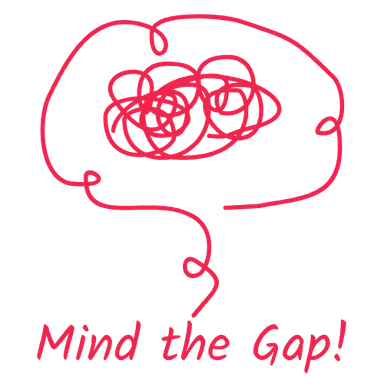Wait, but why?
2025-09-20
Advice tells us what to do, but conviction comes from knowing why. At Neurocient, we believe the shift from rules to reasons is what makes change stick.
Here’s the 12 min audio conversation exploring this idea.
Ideas worth listening to !
We live in an age of advice.
Scroll through your feed, talk to a doctor, listen to a podcast—you’ll hear endless reminders of what you should be doing. Exercise three times a week. Sleep eight hours. Drink more water. Meditate. Limit screen time. The what is everywhere, loud and clear.
And yet, despite this flood of knowledge, so many of us remain stuck. We nod in agreement, we even try for a while, but the routines don’t last. The gym membership goes unused, the sleep schedule collapses, the meditation app is abandoned. If the what were enough, the gap between knowing and doing wouldn’t exist.
The problem isn’t that we don’t know what to do. The problem is that we often don’t know why.
The Limits of What
Take exercise.
Most of us can recite the recommendation: thirty minutes a day, five times a week. We may even start enthusiastically, buying running shoes or joining a gym. But then life intrudes—deadlines pile up, motivation dips, weather turns. The habit fades.
The what—“you should exercise”—provides instruction, but it doesn’t provide conviction. It gives direction but not momentum. It tells you what to do, but not why it truly matters to you.
The Power of Asking Why
Now pause and ask: Why should I exercise?
At first, the answer sounds like a cliché: “because it’s healthy.” But push deeper. Why is it healthy? Because the human body evolved for movement—stillness is what’s unnatural. Why does that matter to me? Because when I move, I feel clearer, calmer, more resilient. Why is that important? Because I want to show up for my family, my work, and myself fully—not drained and distracted, but alive and present.
See the difference? The action hasn’t changed—it’s still a run, a workout, a walk. But the meaning has. Exercise is no longer an item on a checklist. It’s an expression of identity, a way of living in alignment with what you value most.
That shift—from external instruction to internal conviction—is what makes why transformative.
From Rules to Roots
This is the deeper lesson: why takes you to first principles.
When you ask what, you stop at the rule. When you ask why, you strip away assumptions and return to the roots. Scientists call this “first principles thinking.” Instead of accepting what others tell you, you dig down to fundamentals.
Applied to everyday life, this shift changes problem-solving.
Instead of “I should eat less sugar,” you ask why sugar is so compelling in the first place—and discover that your brain is wired for scarcity, but lives in abundance.
Instead of “I should stop checking my phone at night,” you ask why it’s so hard to put it down—and uncover the social instincts and dopamine loops that keep you hooked.
When you know why, you stop treating symptoms. You address causes.
This connects directly to what we explored in Still Running on Caveman Code: our code is ancient, our world is new. Knowing why helps us see those mismatches clearly, so we can design around them.
Why Matters More Than Willpower
This is why so many self-improvement efforts fail. They rely on willpower to enforce the what. But willpower is fragile—it burns out under stress. Why doesn’t burn out. It creates meaning, and meaning is renewable.
When an action connects to your why, you don’t have to force it. You choose it, even when it’s hard, because it fits who you are and the life you want.
Why at Neurocient
At Neurocient, this is where we begin.
We believe the modern world is overflowing with information, but starved of understanding. People know the rules—what they should do—but they rarely know the reasons. And without reasons, rules don’t last.
Our work is to uncover those deeper whys: the instincts, the evolutionary wiring, the hidden drivers of behavior. We translate them into reflections, tools, and frameworks so people can stop fighting their nature and start working with it.
Knowing what can spark action.
Knowing why makes it stick.
Closing Reflection
So, why is knowing why important?
Because it turns compliance into conviction. It transforms problems from mechanical tasks into meaningful choices. It reframes obstacles not as friction but as part of a larger journey. Most of all, it bridges the gap between knowing and doing—the very gap where so much of modern life is lost.
The truth is simple: What tells you the rule. Why gives you the reason. And in the end, reason is what makes change real.
Related Neurocient Articles:
Still Running on Caveman Code
Why Willpower Isn’t the Answer

Enjoyed this? Get one fresh insight each week straight to your inbox.
You might also like:
The Status Threat That Keeps Teams QuietWhy silence in meetings isn’t about courage or engagement, but about ancient instincts hardwired for hierarchy—and how leaders can design for real honesty.